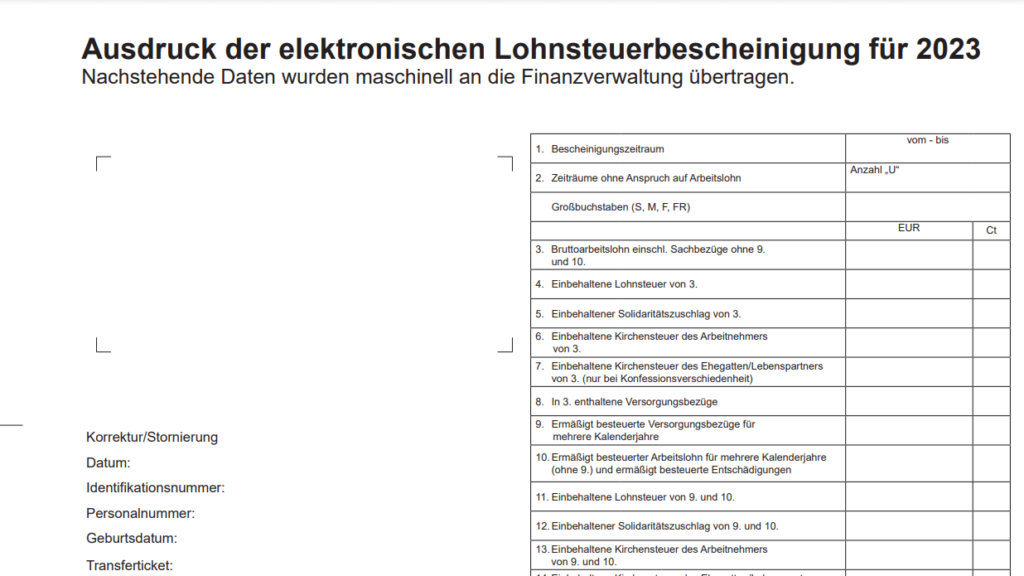Lohnsteuer, or income tax, is a crucial component of Germany’s fiscal landscape. As a progressive tax, it plays a significant role in funding essential public services and shaping the country’s socio-economic policies. In this comprehensive guide, we will explore the implications of Lohnsteuer, how it is calculated, and the various factors that influence this calculation.
Significance of Lohnsteuer
Lohnsteuer serves as a primary source of revenue for the German government. The funds collected through income tax contribute to financing critical public services, including healthcare, education, and social welfare programs. This system ensures that citizens, based on their income levels, make a proportional contribution to the functioning of the state.
Progressive Taxation in Germany
Germany follows a progressive taxation system, meaning that individuals with higher incomes are subject to higher tax rates. The progressive nature of Lohnsteuer reflects the principle of fiscal equity, where those who can afford to contribute more do so. The tax rates increase as income levels rise, creating a tiered structure.
Calculation of Lohnsteuer
Calculating Lohnsteuer involves a nuanced process, considering various factors that influence an individual’s tax liability. Employers use tax brackets and tables provided by tax authorities to determine the amount of Lohnsteuer to be withheld from an employee’s salary. Key factors in the calculation include:
- Income Level: Higher incomes attract higher tax rates.
- Marital Status: Married individuals or those in registered partnerships may benefit from different tax rates and higher tax-free allowances.
- Tax Class: Employees can choose a tax class that reflects their personal situation, impacting their tax liability.
- Allowances and Deductions: Various allowances and deductions, such as those for children, play a role in reducing the taxable income.
Tax Class and Personal Circumstances
Choosing the right tax class is crucial for optimizing Lohnsteuer. There are different tax classes that take into account factors such as marital status, whether both partners are earning an income, and other personal circumstances. Selecting the appropriate tax class can have a significant impact on the amount of income tax withheld.
How is Lohnsteuer different from Einkommensteuer?
“Lohnsteuer” and “Einkommensteuer” are both terms related to taxation in Germany, but they refer to different aspects of the overall income tax system.
- Timing of Payment: Lohnsteuer is deducted monthly and paid throughout the year, while Einkommensteuer is settled annually through the filing of an income tax return.
- Scope: Lohnsteuer focuses on the withholding of income tax from an employee’s salary, providing a steady stream of revenue for the government. Einkommensteuer, on the other hand, considers the comprehensive annual income tax liability, accounting for various income sources, deductions, and credits.
- Process: Lohnsteuer is a more straightforward process handled by employers through payroll, whereas Einkommensteuer involves a more detailed and comprehensive review of an individual’s financial situation, often requiring the assistance of tax professionals for optimal results.
Annual Income Tax Return
While Lohnsteuer is withheld monthly by employers, individuals in Germany often file an annual income tax return. This process allows taxpayers to reconcile any differences between the amount withheld and their actual tax liability. It may result in a tax refund or an additional payment, depending on individual circumstances.
Conclusion
Understanding Lohnsteuer is crucial for individuals working in Germany. As a cornerstone of the country’s taxation system, it not only funds essential public services but also reflects principles of fairness and equity. By comprehending the factors that influence Lohnsteuer calculation and making informed choices, individuals can navigate the German tax system more effectively, ensuring that their contributions align with their financial circumstances.


